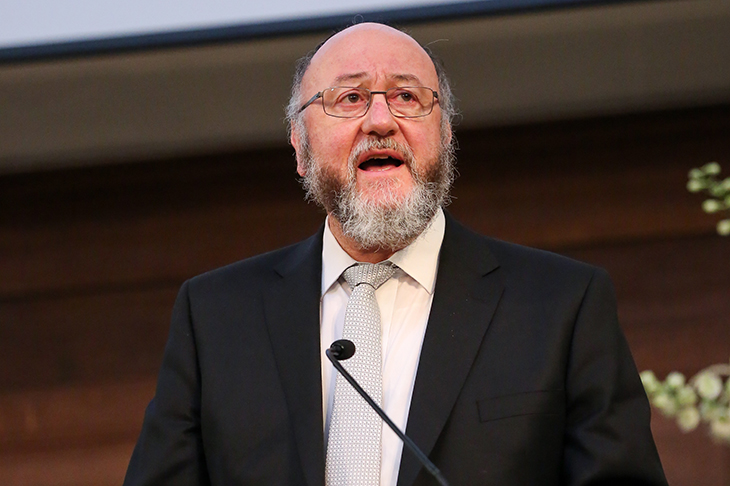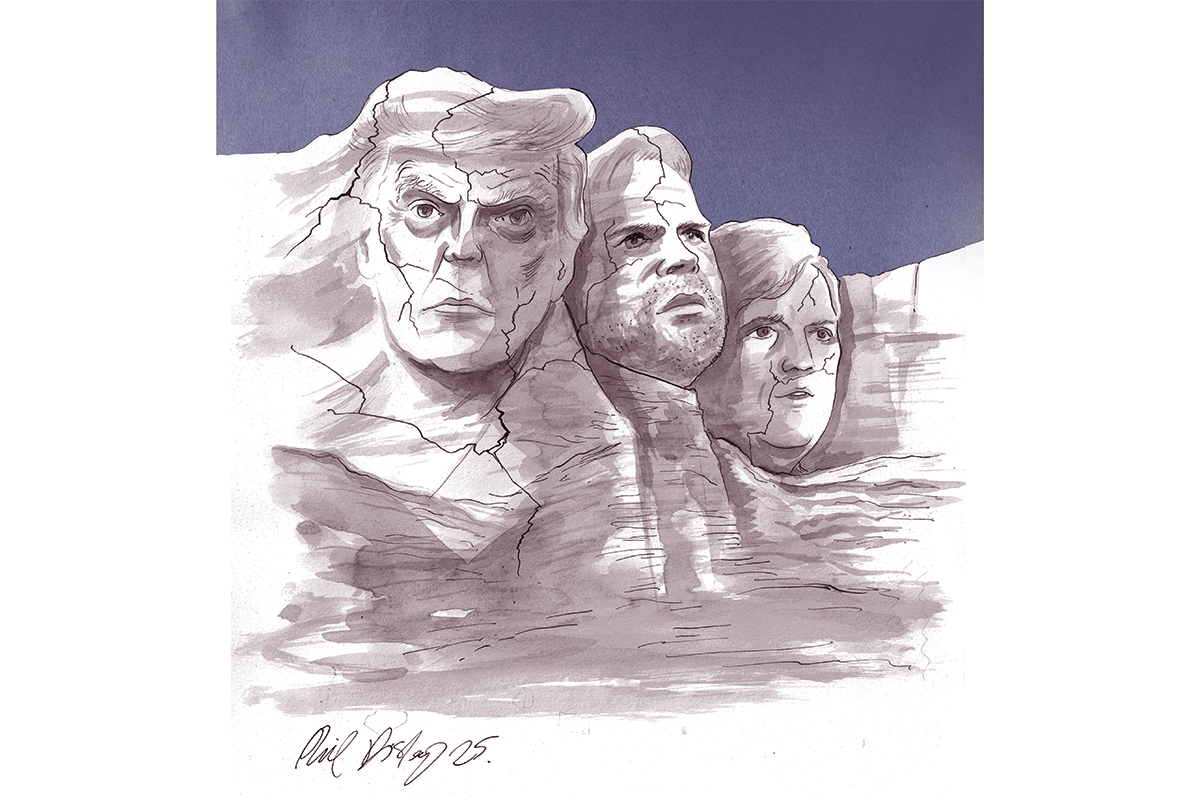Ephraim Mirvis, the Chief Rabbi, was right to take the unprecedented action of denouncing Jeremy Corbyn’s Labour for endemic anti-Jewish prejudice. James Cleverly, the Conservative chairman, was right to draw attention to polls showing half of British Jews are contemplating emigration if Labour wins. The Jewish Chronicle was right to turn its cover into an unprecedented open letter, begging Britain’s non-Jews not to vote for Corbyn. But if support for Labour does not collapse as a result of all this condemnation, don’t be surprised.
In fact, Labour is doing rather well. Before the Commons voted to hold an election, Labour averaged 23 percent support in the polls. Now, it’s nearly 31 percent, as Remainers flock to the party that is being branded an anti-Semitic mob. Why should this be? The reason is simple: public awareness of Labour anti-Semitism will not swing very many votes. The Chief Rabbi may be right that ‘the soul of our nation is at stake’ in this election, but voters cannot agree on what the nation is and where its soul lies.
Once, a credible accusation of anti-Semitism would be enough to put a party leader beyond the pale. But times change. The Corbynites oppose big banks and transnational finance in general, and London’s legal-financial-media nexus in particular. That position is popular. They challenge the existence of the state of Israel and portray Palestinians as victims of a racist aggressor. That isn’t exactly going against the grain. When the Conservatives — the party of business and banks, with an Israeli-born co-treasurer — call Labour anti-Semitic, they’re giving Corbyn and his followers a perverse endorsement.
To call them ‘anti-Semitic’ is to admit that they have the courage of their convictions, Rothschild memes and all. This has a certain appeal to new generation of voters who have grown up seeing Israel as the bad guy and, as Primo Levi feared, the Holocaust as ancient history. Memories of violence against Jews are replaced by the idea of the Jews as cynical aggressors who use cries of anti-Semitism to stop scrutiny of Israel. You don’t have to go too far in the digital world to find such theories which have, over the years, been liked or shared on social media by more than a few senior Labour figures.
What’s more, Britain has very little in terms of a discernible ‘Jewish vote’, in the way the US does. It’s not just that the Jewish population is small (just over a quarter of a million in the last census, though the true number is probably higher) or concentrated in north London and its commuter fringe. It’s also that the tribe of Ephraim Mirvis has assimilated so well that it keeps its collective head down and only votes Jewishly when forced. Research by Muslim advocacy group Mend estimates that the Muslim vote (which was 85 percent Labour at the last election) could swing up to 50 seats in this election. I’m not sure anyone would claim the Jewish vote matters in even five.
At the turn of the last century, most of Britain’s Jewish population was split between Liberal and Conservative. By the 1920s, the working-class children of the wave of immigration from Russia were enfranchised Labour voters. The Labour vote softened in the postwar decades as their children became middle class. But many voted Liberal as an alternative to Labour because the Conservatives were still hostile to Jews.
Then Thatcher came along and made the party kosher — to the dismay of Tories like Harold Macmillan, who notoriously complained that her cabinet contained ‘more Old Estonians than it does Old Etonians’. A slim majority of British Jews voted Conservative in the 1980s and 1990s. This rose to two thirds when Labour offered the notionally Jewish Ed Miliband. So if voting Jewishly means voting Tory to avoid a Labour-led coalition, then Jews were doing it before Corbyn came along, albeit not in quite such large numbers. Polls suggest just 7 percent of Jews will vote Labour at this election.
But how sure can we be that Jews will shun the Labour party? There was a furore over anti-Semitism in the last election and the Jewish luvvies of Hampstead and Kilburn didn’t do much to prevent Labour’s Tulip Siddiq winning a thumping majority. Then again, in spite of her pro-Corbyn credentials, she has served on the All-Party Parliamentary Group Against Anti-Semitism and has good relations with Jewish community leaders. The Tory emphasis on Labour anti-Semitism may not even help them in Ilford South. Mike Gapes, elected there for Labour in every election since 1992, has defected to Change UK and will take a good chunk of his old voters with him. Mike Freer, who is not Jewish, recovered Thatcher’s old turf, Finchley and Golders Green, from Labour in 2010 and has held it since. But Luciana Berger, a Jew hounded out of Liverpool by Labour anti-Semites, is challenging him as a Remain-supporting Liberal Democrat.
Jews are like other people. This election, as the Jewish Chronicle said, will turn on ‘Brexit, austerity, the NHS, education and myriad other issues’. Three in five British Jews voted Remain, which attracts Jewish voters to the Lib Dems. The pull factor of Remain seems to be stronger than Labour’s push factor. That won’t necessarily benefit the Tories.
I’d argue that people who are still thinking of voting Labour should, as the Chief Rabbi said, check their ‘moral compass’. But it doesn’t seem to have occurred to the Tories and their supporters that calling Jeremy Corbyn and his followers anti-Semitic might not improve their chances, and might even make things worse for Boris Johnson.
Once, anti-Semitism was called ‘the socialism of fools’. These days, Corbyn’s
retro-socialism is anti-Semitism for fools. As the history of European democracy shows, you won’t win votes by siding with the Jews, but you can certainly win votes by being against them.
This article was originally published in The Spectator’s UK magazine. Subscribe to the US edition here.


























